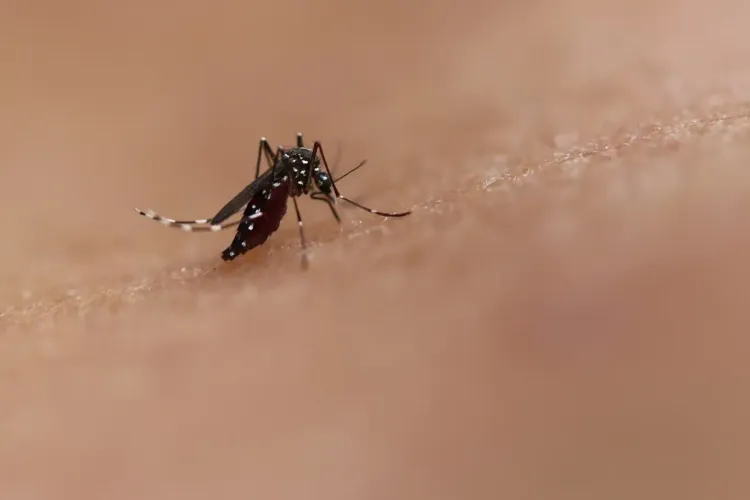Could Mosquito Saliva Enhance Our Immune Response Against Chikungunya?

Synopsis
Key Takeaways
- Research from Singapore reveals mosquito saliva can enhance immune response against CHIKV.
- Sialokinin in mosquito saliva inhibits inflammation and affects disease progression.
- Understanding vector-host interactions is vital for disease prevention.
- Findings may lead to new therapeutic strategies for viral infections.
- Climate change is influencing the spread of mosquito-borne viruses.
New Delhi, Oct 22 (NationPress) A group of researchers from Singapore has uncovered a mechanism by which mosquito saliva may enhance the human body's immune system during a chikungunya virus (CHIKV) infection. This study, published in Nature Communications, revealed that sialokinin—a bioactive peptide found in the saliva of Aedes mosquitoes—attaches to neurokinin receptors on immune cells, effectively inhibiting monocyte activation.
This action diminishes inflammation and aids in early viral spread. According to the team from the A*STAR Infectious Diseases Labs (A*STAR IDL) in Singapore, these findings provide critical insights into the role of mosquito bites in influencing disease outcomes.
"This research presents strong evidence that mosquito salivary proteins are not merely passive virus carriers but active participants in modulating host immunity," stated Dr. Siew-Wai Fong, the corresponding author and Senior Scientist at A*STAR IDL.
"Targeting sialokinin or its receptor interactions could open up new therapeutic avenues to alleviate inflammation and enhance outcomes in CHIKV and possibly other arboviral infections," added Fong.
CHIKV, transmitted by Aedes mosquitoes, leads to painful joint swelling that can linger for months. The research team identified sialokinin as a pivotal factor influencing the body's response to the infection.
The study demonstrated that sialokinin binds to neurokinin receptors in the immune system, temporarily reducing inflammation during the early phase of infection.
Laboratory and pre-clinical investigations showed that this initial suppression of the immune response facilitates easier viral dissemination to other tissues, potentially leading to more severe symptoms later on.
Supporting this, patients experiencing more intense chikungunya symptoms exhibited elevated levels of antibodies against sialokinin, suggesting a stronger immune response to the peptide, which may worsen disease severity.
The findings highlight the necessity of understanding vector-host interactions in light of emerging infectious diseases. With climate change accelerating the spread of mosquito-borne viruses, recognizing and neutralizing salivary components like sialokinin may pave the way for innovative disease control and prevention strategies.









